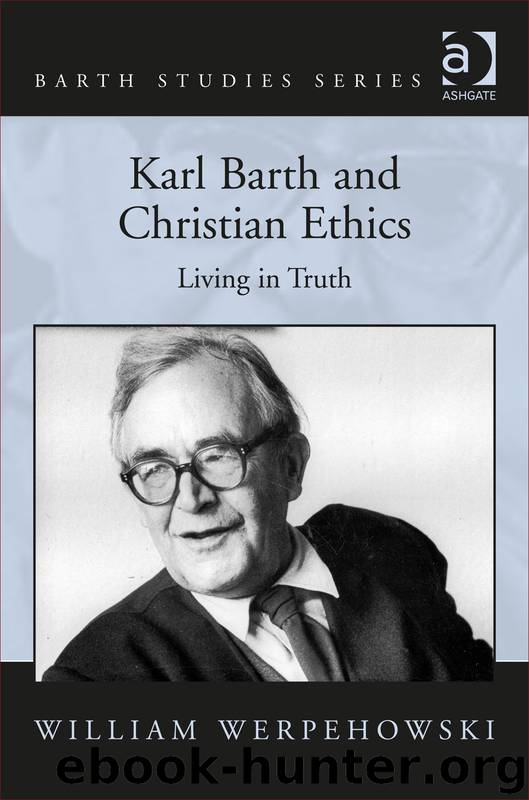Karl Barth and Christian Ethics by Werpehowski William

Author:Werpehowski, William
Language: eng
Format: epub
Publisher: Ashgate Publishing Ltd
Published: 2014-03-14T16:00:00+00:00
Chapter 6
In Search of Real Children: Innocence, Absence and Becoming a Self
For in truth we are not called once only, but many times; all through our life Christ is calling us. He called us first in Baptism; but afterwards also; whether we obey His voice or not, He graciously calls us still. If we fall from our Baptism, He calls us to repent; if we are striving to fulfill our calling, He calls us on from grace to grace, and from holiness to holiness, while life is given us.1
These words are taken from a sermon preached by John Henry Newman in the 1830s. They bear on scriptural instances of a divine call, as to Paul, to Peter, Andrew, James and John, and, significantly for my purposes, to the child Samuel. “And the Lord came, and stood, and called as at other times, Samuel, Samuel. Then Samuel answered, Speak, for Thy servant heareth” (1 Sam. 3:10). The sermon vividly depicts the “accidents and events” in which we may be called “all through our life,” such as in circumstances of loss, or in the course of worldly temptation, or through the light of exemplars we may not fully appreciate or understand. We can imagine such accidents and events occurring in the lives of adults, like Paul, and of children, like Samuel; indeed, Newman’s sermon may be understood to take up a version of the Kierkegaardian question of what it means for us to be contemporary with Jesus Christ.
There is, however, a related issue about the nature not of “divine calls” such as these, but of “divine callings” or vocations that display a certain social texture and historical continuity, and that track, as it were, particular persons with respect to a specific activity or status or situated area of responsibility. With this issue and the parallels noted above, we may take pause. We can and should talk about and ponder “vocations” as they concern adults, be they young or old. But does it make sense to speak of the vocation of the child?
I believe that the idea of “the vocation of the child,” as applied to young people up to, shall we say, their early adolescence, is dangerous because of the self-deception it can foster among those who care for children in societies like our own, and who may thus inflict damage in its name. Yet it is dangerous in a second, salutary sense; for the notion properly considered imperils that same partly willed, partial blindness through its challenge, through its calling us out, truthfully to see real children as they may be called by God. In this chapter I will try to explain both the problem and the promise, following a brief investigation of “vocation” as a Christian theological category.
Download
This site does not store any files on its server. We only index and link to content provided by other sites. Please contact the content providers to delete copyright contents if any and email us, we'll remove relevant links or contents immediately.
The Secret Power of Speaking God's Word by Joyce Meyer(3154)
Signature in the Cell: DNA and the Evidence for Intelligent Design by Stephen C. Meyer(3123)
Real Sex by Lauren F. Winner(3002)
The Holy Spirit by Billy Graham(2938)
The Gnostic Gospels by Pagels Elaine(2516)
Jesus by Paul Johnson(2349)
Devil, The by Almond Philip C(2323)
23:27 by H. L. Roberts(2245)
The Nativity by Geza Vermes(2221)
Chosen by God by R. C. Sproul(2157)
All Things New by John Eldredge(2149)
Angels of God: The Bible, the Church and the Heavenly Hosts by Mike Aquilina(1950)
The Return of the Gods by Erich von Daniken(1925)
Angels by Billy Graham(1917)
Knowing God by J.I. Packer(1848)
Jesus of Nazareth by Joseph Ratzinger(1800)
The Gnostic Gospel of St. Thomas by Tau Malachi(1780)
How To Be Born Again by Billy Graham(1775)
Evidence of the Afterlife by Jeffrey Long(1773)
